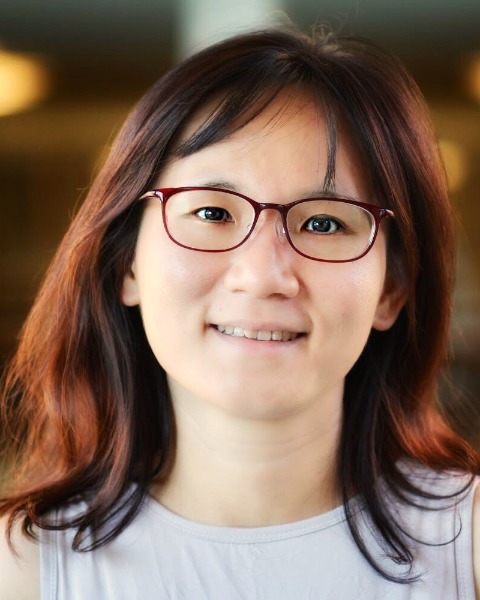
Yu-Ying P. Hsieh (she/her/hers)
Fred Hutchinson Cancer Center
I study the mechanisms of microbial interaction and evolution. These tiny microorganisms have the remarkable ability to survive in the face of various environmental stresses and antagonism from predators or competing species. Microbial adaptation to stress has profound implications for our understanding of biology, including the impact of microbial communities, host-microbe interactions, and even human infectious diseases. Armed with my expertise in yeast genetics and experimental evolution, and new training opportunities provided by the Cystic Fibrosis Foundation Transition Award, I am uniquely equipped to elucidate microbial adaptation from mechanistic and evolutionary perspectives. During my Master’s research with Dr. Jun-Yi Leu, I focused on how yeast cells adapt to environmental stress via regulating population heterogeneity, specifically investigating the role of the chaperone protein Hsp90. My groundbreaking discovery showed that Hsp90 can buffer non-genetic variation in budding yeast, providing the first evidence of its underlying mechanism and adaptive benefit, leading to one 1st author publication in Molecular Cell. As a research technician in the Leu lab, I collaborated with a postdoc on a project studying the evolution of mutation rates in yeast. Our long-term evolution experiment using mutator strain revealed that yeast cells evolve multiple strategies to reduce mutation rate or increase tolerance to deleterious mutations after evolution. This work was published in Current Biology. These experiences solidified my desire to pursue a career in science, and I decided to pursue a Ph.D. abroad to broaden my research horizon.
For my Ph.D. research, I joined the lab of Dr. Andrew Murray at Harvard University to delve deeper into the molecular mechanisms of evolution. With my colleagues, I pioneered the concept of “evolutionary repair”, in which cells are forced to adapt to a specific genetic perturbation by experimental evolution, to uncover alternative mechanisms for a biological function. Using this approach, I sought to understand how novel biological functions arise in evolution. I focused on the biological functions of two kleisin proteins, which are part of the cohesin complex that regulates chromosome segregation. These two kleisins have specialized functions for mitosis and meiosis, respectively, and they cannot compensate for each other’s function. I replaced the endogenous mitotic kleisin with the meiotic one in budding yeast and asked whether cells can evolve to use the meiotic kleisin for accurate chromosome segregation in mitosis. Through this work, I found that mutations in multiple functional modules, rather than the meiotic kleisin itself, were sufficient for cells to use the meiotic kleisin in mitosis. This discovery has significantly advanced our understanding of the evolution of biological function by shifting the focus from changes in the focal protein to changes outside of it. My work suggests that these changes provide a larger target size for altering a biological function, thereby determining alternative mechanisms of a selected function. Overall, my work reveals a generalized principle of functional innovation and provides novel insights into cohesin biology, leading to one 1st author publication in PLOS Biology and one review paper in Current Biology.
For my postdoctoral research supported by Cystic Fibrosis Postdoctoral Fellowship, I focus on the competition between fungi and bacteria that commonly co-infect CF airways. I am co-advised by Dr. Harmit Malik (Fred Hutch Cancer Center), an evolutionary geneticist who studies genetic conflicts between species (host-virus, host-microbe interactions), and Dr. Ajai Dandekar (University of Washington), a CF physician and an expert on bacterial communication. I have created a unique research program, which draws on my mentors’ strengths but is distinct from both their research programs. I aim to uncover novel molecular mechanisms of fungal-bacterial competition and understand its biological and biomedical consequences. Through my efforts, I have successfully developed an experimentally tractable model to study the competition between the fungus Candida albicans and the bacterium Pseudomonas aeruginosa. These two microbes are a primary cause of polymicrobial infections in humans; thus, a great understanding of their interactions has profound implications for microbiology and the development of antimicrobial strategies. While it is known that bacteria like P. aeruginosa can inhibit fungal growth by toxin expression or ion competition, it remains unclear how fungi like C. albicans counteract bacterial attacks. My recent work discovered that Mg2+ is a novel axis of nutritional competition between C. albicans and P. aeruginosa. Such Mg2+ competition has significant implications on bacterial antibiotic resistance. My results indicate that disrupting fungal-bacterial competition for Mg2+ is crucial for developing effective therapy against polymicrobial infections, like those in CF (1st author publication in PLOS Biology). Additionally, I am revising a review article summarizing understudied facets of fungal-bacterial competition for mBio. In my proposal, I will comprehensively characterize the impact of Mg2+ competition on drug resistance and physiology in both bacteria and fungi. I will also identify other undiscovered axes of fungal-bacterial competition. The CFF Transition Award will allow me to gain valuable training in mass spectrometry, biofilm study, Dub-seq, fungal cell biology, and genetics while expanding my skillset in genomic analysis. To facilitate my training, I have assembled an amazing team of scientific collaborators and career advisors. My interdisciplinary research program, track record of publishing insightful discoveries, and ability to support my research with external funding prepare me for a highly productive postdoctoral training and a smooth transition to a future, independent position.
Presentation(s):
-
W30.1- Widespread fungal-bacterial competition for magnesium enhances antibiotic resistance
Saturday, September 28, 2024
7:45 AM - 9:45 AM ET
